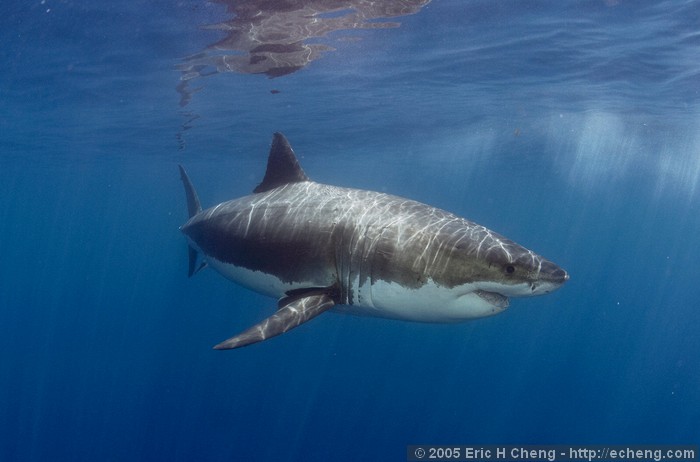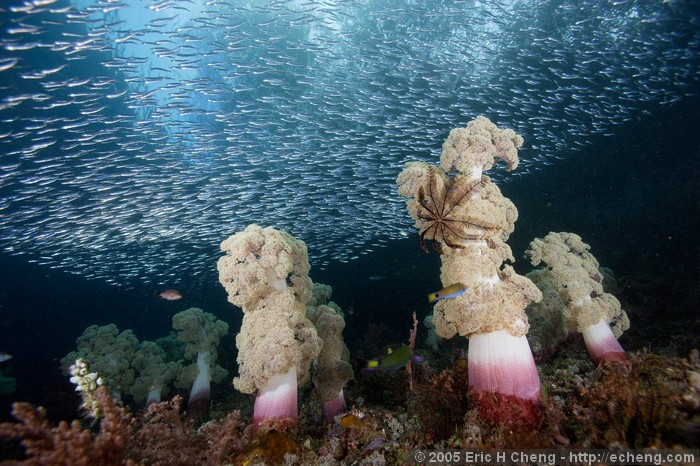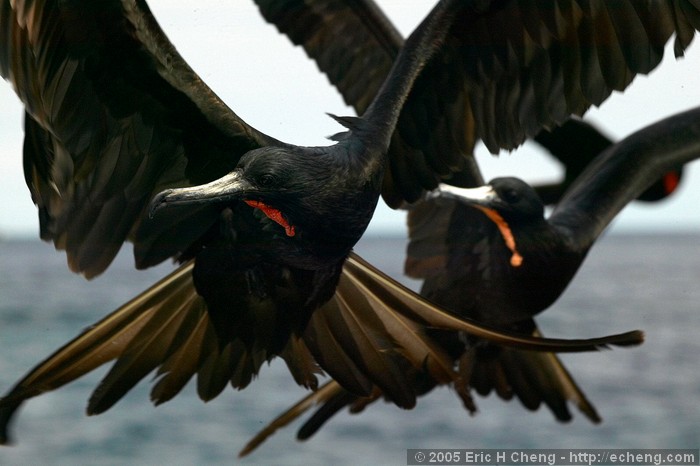




 |
 |
 |
 |
 |
We are trying to develop a community where photographers can come and discuss nature, wildlife and pet photography related matters. We encourage you to enter the forums to discuss this interview as well as to share your photographs and experiences in our forums here at NWP.
This article is Copyright 2005, James Morrissey, and may not, in part or in whole, be reproduced in any electronic or printed medium without prior permission from the author. The images in this article are the property of Eric Cheng and have been licensed to James Morrissey and the NWP Photo Forum for the purpose of this interview.
Part II: The Business Aspects of Photography
 |
(c) Eric Cheng
JM: Can you describe what your business looks like?
EC: My business is actually a combination of many things. I sell stock images, write articles for magazines, lead trips, teach workshops, run an online web community, do a bit of software consulting, and very occasionally, play gigs as a cellist.
JM: How does Wet Pixel fit into your business plan?
EC: Wetpixel started as a labor of love. I never imagined that it would eventually be such an important part of my identity. Wetpixel is now a fantastic international community and is a large part of my business plan. I've found that one of the biggest challenges to getting started as an underwater photographer is financing the necessary trips into the field. Because Wetpixel's audience is larger than some dive magazines, my involvement gives me the credibility I need to establish contact with various organizations that would otherwise be difficult to break into.
Wetpixel's audience is excited about learning and travel, and the workshops and trips I've run are almost exclusively populated with our members. The community is also a tremendous source of information.
JM: Besides the photographs that you have sold to various magazines, what other types of commercial photography are you doing?
EC: I'm just now starting to do assignment work for dive magazines. Outside of sales to magazine and books, I've also done some portrait work - mostly for friends. I also plan to sell prints online and I am working on the infrastracture necessary to get everything online in the right way.
JM: How are you getting exposure - both the website AND your photographic materials?
EC: My exposure has been through two main channels: the web, and word of mouth.
In addition to Wetpixel, I have been running a personal website since the mid-90s. It has become a huge repository of information that I've tried to organize as best as I can. Somehow, during the course of the past eight years, my personal website has ended up linked from quite a few magazines and newspapers -- and from hundreds of blogs and other miscellaneous sites. Needless to say, it has a high Google ranking. And because everyone uses Google for pretty much everything now, people tend to find me in the strangest of ways.
As for worth of mouth exposure, the underwater photographic community is very small. Having Wetpixel certainly helps me to get exposure, but I'm also always sharing information and images with pretty much everyone I meet (who shows an interest, I mean) when I'm on the road.
JM: It has been said many times that the biggest part of running a business is not actually doing your trade, but knowing how to RUN a business. How have you educated yourself in running a successful business?
EC: Good question! I struggle daily with the fact that my business is currently run in an informal manner. But mostly, it is because I want to keep my career path on my own terms. I don't want to formalize things so much that I will no longer be able to move quickly when something new presents itself.
 |
(c) Eric Cheng
JM: What have been the big pieces of 'getting seen' in the photographic community? How is it that you have been able to thrive so quickly?
EC: I was very fortunate because I had the right skillset at the right time. I also became friends with professionals in the industry who wanted to leverage those skills (in addition to burgeoning friendship, I mean).
I would say that the biggest piece for me was my predisposition for sharing information on the web. I tend to share information freely and publicly, which is great for building up a community like Wetpixel -- and, for meeting people. I probably met a majority of the underwater photographers in the United States within two years of taking a camera underwater. Incidentally, nearly all of them tell me that it's an industry that isn't worth getting into. :)
Also important was that I had some money saved up from a prior job, which allowed me to travel for a couple of years to establish credibility through a small portfolio of good work. Otherwise, it might have taken me a decade or more. The importance of this cannot be understated. Keep your day job!
JM: What skill sets do you think are important for underwater photography? How are they different from other forms of nature photography (besides the obvious need for a wetsuit :) )?
EC: Underwater photography is very challenging, and you should be a strong scuba diver before attempting to take a camera underwater. I see many people with cameras smashing into everything in their path, and it's unfortuate to the animals they are damaging. Also, you can put yourself and everyone with you at risk if you aren't prepared for what the ocean might throw at you.
Aside from the whole water thing, it's just like being on land. Understanding the animals you are photographing is very, very important. Once you know where to find something, the rest is up to persistence, patience, execution, and luck!
JM: When was the first time you were published?
EC: My first published image was a picture of the sign of a seedy club in Seattle. The sign read, "Come see OUR Windows 95!," and PC Magazine picked it up as a joke image.
My second publication streak came as a result of experimentation in digital infrared photography, when digital cameras first hit the market (more at www.echeng.com/photo/infrared).
 |
(c) Eric Cheng
JM: Is your photographic business what you had planned it on being when you had started?
EC: I didn't have any plans when I started, so all of this is new to me. I feel like I'm paving the path ahead of me as I'm walking on it.
JM: What plans do you make for your business over the next year? How do you see yourself expanding your business (both artistically and financially)?
EC: Personally, I'd like to shift more towards assignment work related to exploration, research, or conservation, as opposed to tourism or the pursuit of stock images, neither of which I am particularly interested in. Having said that, I plan to formalize a stock library of images while not actually actively trying to fill its gaps.
I've said this before, but I'm careful with the decisions I make because I want to keep photography on my own terms. If I find myself doing things related to photography just to make money, I might simply decide to return to my old industry, which pays enough to allow a passionate pursuit of photography as a serious hobby. It's better to retain passion than to allow it to twist into obligation.
Regarding Wetpixel, I plan to expand into the photography expedition business (we already have three trips planned for next year), and to try to provide a way to leverage the amazing images our members are sharing with the community.
JM: Do you want to talk a bit about your workshops and business trips?
EC: Sure! For the past couple of years, I've been giving workshops and seminars at various dive and underwater photography expos and festivals (DEMA, Seaspace, and Boston Sea Rovers). I've also started staffing on-site workshops, and leading my own expeditions.
Next week, I'll be teaching at the Digital Shootout 2005, which will be held in Bonaire this year. We'll have about 40 participants, with a staff of 4 pros.
So far in 2006, I'm leading trips to Guadalupe for Great White Sharks (with Norbert Wu), the Bahamas for tiger and great hammerhead sharks , and to South Africa for the sardine run.
If you would like to see more of Eric's work, please feel free to check out his websites at: http://www.wetpixel.com and http://www.echeng.com.
As always, we encourage you to come join the community and to be participants in the forums!
 |
 |
 |
 |